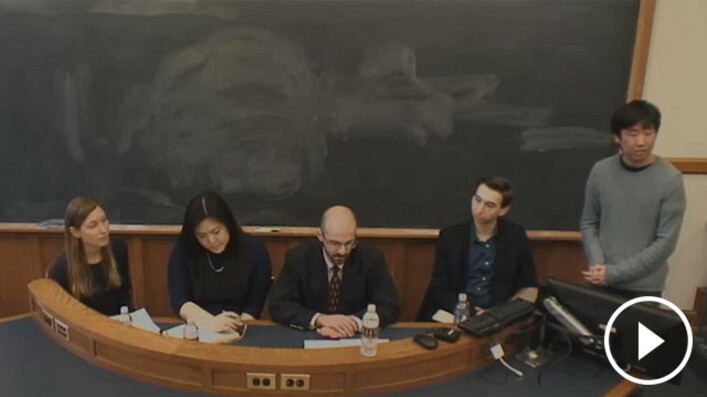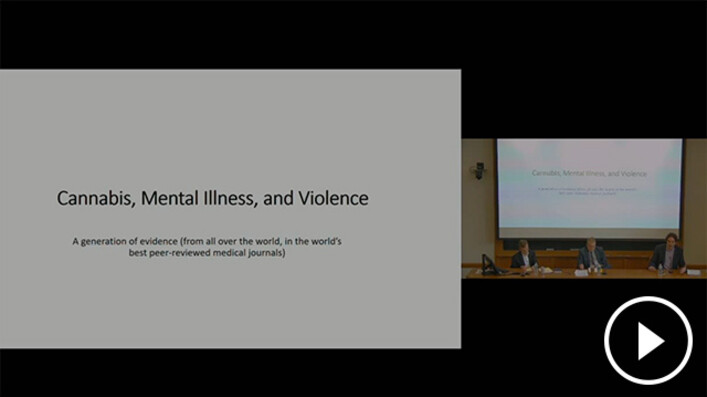David Goodall Miller ’18
I think I decided to attend Yale Law School really on three factors. One was the small class size, both in terms of the whole class of 200, but also the small classes in terms of many seminars, things like that, with great professors.
The second was the unique curriculum in that we only have the one required semester. And, after that, it becomes a bit of choose your own adventure, where you can take almost anything you want to take. You can go in all sorts of directions with that.
And the third point I was looking for was really a strong human rights program, both in terms of clinical work, but also in terms of non-clinical type work that I could do within human rights.
And Yale seems to be a perfect place really in all those three. And I'm happy to say that's really been borne out so far in my three years at the law school.
I got involved in human rights law really, from the first semester I was allowed to. So the Lowenstein Project basically does research for usually practitioners or international judges in human rights.
And, after that, I was involved as a student legal director for the International Refugee Assistance Project, also known as IRAP. And so I both had-- with a teammate, we had an individual client, a refugee client, and we also then supervised other teams and helped them liaise and work with their cases.
Finally, I've been involved in the Lowenstein Clinic for the past year, where we take in international cases, reports, advocacy, things like that, all based around human rights. And so I have one domestic project and then one international project this semester as I'm wrapping up law school.
So I think one of the most meaningful aspects of law school so far has been just when we got the news about our client for the International Refugee Assistance Project being resettled and his family being resettled as well. And we were just so excited to get that news, because we had been working on it for a while. We had worked for over a year at that point. There are all sorts of paperwork. You go into all sorts of things. You're never totally sure about what the final result will be.
And we got the news. As it turned out, he was actually going to be able to come in only about a week or so after that. So to be able to call him and tell him that, being able to talk to our supervising attorney, we were all so excited, first, of course, for him and his family having this great opportunity that they really desired for many, many good reasons, but, also, on our end, just being proud that-- we feel like we accomplished something for this person using law in a way that when you're coming into law school as a first-year or second-year student, it can be even hard to imagine that you can actually do that. And so having that moment and feeling like it had all come together was quite powerful for us I think.
A student perspective on the community, the curriculum, human rights law, and clinics at Yale Law School.


